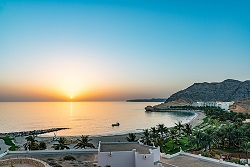Commercial Agency Law of Oman
 The most prevalent form of doing business in the Gulf Co-operation Council countries (the GCC) for the foreign companies is to appoint a local agent (the Agent). Effectively, this means entering into a contract with the citizen (individual or corporate entity owned by citizen or citizens) of that country. This legal relationship permits the foreign principals to distribute their products in the region where local market know-how is useful and desirable. The Agent assists the foreign principal in distribution and providing marketing, distribution and after-sales service for the imported line of products. Commercial agency business for the locals is a lucrative business, and therefore the regulation of such activity is pivotal for oil-rich monarchies, where the foreign companies can exploit the resources, and control the trade in the region. The Agent friendly regulations continue to be in force throughout the GCC, however, recent amendments in the commercial agency laws in Oman & Kuwait portrays distinct approach, and in this article, we shall discuss the Commercial Agency Law in Oman.
The most prevalent form of doing business in the Gulf Co-operation Council countries (the GCC) for the foreign companies is to appoint a local agent (the Agent). Effectively, this means entering into a contract with the citizen (individual or corporate entity owned by citizen or citizens) of that country. This legal relationship permits the foreign principals to distribute their products in the region where local market know-how is useful and desirable. The Agent assists the foreign principal in distribution and providing marketing, distribution and after-sales service for the imported line of products. Commercial agency business for the locals is a lucrative business, and therefore the regulation of such activity is pivotal for oil-rich monarchies, where the foreign companies can exploit the resources, and control the trade in the region. The Agent friendly regulations continue to be in force throughout the GCC, however, recent amendments in the commercial agency laws in Oman & Kuwait portrays distinct approach, and in this article, we shall discuss the Commercial Agency Law in Oman.
Within the Sultanate of Oman, the following laws, and regulations dictate the relationship between foreign principals and agents:-
- The Law of Commerce (the Royal Decree 55 fo 1990);
- The Commercial Agency Law (the Royal Decree 26 of 1977 as amended by Royal Decree 82 of 1984, Royal Decree 73 of 1996, Royal Decree 66 of 2005, and Royal Decree 34 of 2014); and
- The Commercial Register Law (the Royal Decree 3 of 1974 as amended by Royal Decree 88 of 1986)
The Royal Decree Number 34 of 2014 (the Decree) came into force, which amended various provisions of the Omani Commercial Agencies Law Number 26 of 1977) (the Law) and the Decree introduced various changes to the commercial agency regime as previously applicable in Oman.
 The most welcoming provision for the foreign principal of this Decree is repealing Article 10 of commercial agencies law. This provision prominently relied upon by Omani agents where the agency agreements get governed by Omani Law and the foreign principals could only terminate the agency contract when there was a material by Omani agent under the contract, and the foreign 'principal' has no obligation to pay any commission to the agent. The Omani courts have taken a view on the interpretation of Article 10 that unless there is a material breach by the registered agent - any termination was unjustified, and thus the agent’s Article 10 right to statutory compensation from the principal was triggered. Under this Article, the Omani courts have given the judgments where Omani agents have derived two or three years’ net profit from the agency in question, plus reimbursement of any expenditure in respect of capital items which were rendered wholly redundant due to the agency termination.
The most welcoming provision for the foreign principal of this Decree is repealing Article 10 of commercial agencies law. This provision prominently relied upon by Omani agents where the agency agreements get governed by Omani Law and the foreign principals could only terminate the agency contract when there was a material by Omani agent under the contract, and the foreign 'principal' has no obligation to pay any commission to the agent. The Omani courts have taken a view on the interpretation of Article 10 that unless there is a material breach by the registered agent - any termination was unjustified, and thus the agent’s Article 10 right to statutory compensation from the principal was triggered. Under this Article, the Omani courts have given the judgments where Omani agents have derived two or three years’ net profit from the agency in question, plus reimbursement of any expenditure in respect of capital items which were rendered wholly redundant due to the agency termination.Other Notable Changes Raised From Omani Royal Decree 34 of 2014
- Ministry of Commerce and Industry no longer have the powers to ban imports of foreign supplier's products. Earlier, the Ministry of Commerce enjoyed discretionary powers to apply the prohibition in cases where principals had unjustifiably terminated the Agent;
- Article 7 of the Oman Commercial Agency Law has been repealed. This Article previously required overseas manufacturer and distributors (exception being: those engaged in or; dealing in weapons, ammunition, and military equipment) to carry out any business in Oman only through an Agent. In author's view, this step of repealing Article 7 was to promote and encourage foreign manufacturers and distributors to exploit Oman markets more freely and set up their presence;
- Article 14 of the Omani Commercial Agency Law has also undergone amendment. The Omani Council of Ministers is now empowered to assess and monitor the maximum number of agencies permitted for registration under an individual agent. Evidently, this step was taken to ensure they do not gain excessive benefits or advantages by attaining a dominant position which could eventually affect the demand and supply inequity, and further result in increased pricing.
The Ministry of Commerce and Industry has notified that the new law shall become effective and will apply to existing principal-agent relationships.
Clearing the Confusion - How is Agency Agreement in Oman Different than Distribution Agreement?
As mentioned before the commercial agency refers to the Commercial Law, the Commercial Agencies Law, and the Commercial Register Law, while the Distribution Agreement relates to the general rules in the Civil Law. In the commercial agency, the agent promotes and sell products for the Principal according to the direct relationship between both of them organized by the agreement. Speaking of a distribution agreement, on the other hand, the distributor can distribute di¬fferent kinds of products from di¬fferent sources under the distributor’s name, and the distribution rights are obtained by the principal or the agent. In the commercial agency, the agreement shall organize all the details and shall contain sufficient information about the agent's name, nationality, products, term, and the territory while this is not mandatory in the distribution agreement. The commercial agency shall be registered in the Ministry of Trade and Industry to have legal e¬ffect, while there are no registration formalities for the Distribution Agreement and will be sufficient to be certified by the notary public.
 English
English
 عربي
عربي Русский
Русский 官话
官话 português
português
 Türk
Türk 



.jpg&w=120&h=80&zc=1)



